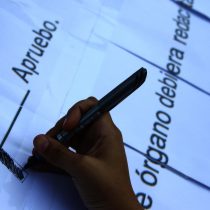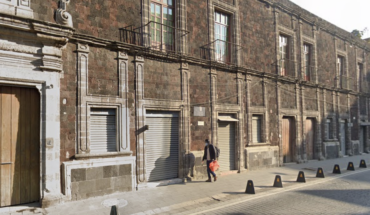
August 3, 2016 was a historic day for Chilean communities residing abroad. Law 20,960 was enacted on the day, which reformed the Political Constitution of the Republic to guarantee for the first time the right to vote in presidential elections and national plebiscites to citizens residing abroad. This had been a historic demand for Chileans and Chileans around the world since the return of democracy. Vote is a necessary step for the recognition of our compatriots abroad as part of the national community. Giving this right to 5.5% of the Chilean population formerly excluded by law is undoubtedly an important step forward in consolidating a more robust and inclusive democracy.
However, how much good does it serve for a right to be enshrined in law, if it becomes a dead letter because of the State’s inability to ensure its exercise? This is precisely the case we are seeing today, when thousands of compatriots find the property unable to exercise their right to vote in the national plebiscite of 25 October. This is because, in contrast to other countries, the Chilean State has no mechanisms to exercise the right to vote from abroad without having to travel long distances to register or change its electoral address and then to vote, and to individually bear the costs involved. This situation has become even more complex in the context of the pandemic, where it is simply impossible for many people to exercise their constitutional right to vote.
While in Chilean territory registration is automatic, based on the last residence declared by the individual, abroad it is not. Currently, those living abroad must go to their nearest consulate, often located in a distant city or even another country, only to obtain the unique key needed to change their address. Those who were not born in Chile must also go to the consulate to prove that they have lived in Chile for at least one year and register for the voter register. This procedure creates inequality before the law between compatriots residing in national territory and those living abroad. Such inequality could be corrected if the State implemented safe mechanisms to register or update the electoral address online, preventing individuals from having to bear the high costs of a trip.
The COVID-19 health crisis has deepened these inequalities. The possibility of moving and activities that we considered trivial in the past has been restricted, even within the same town of residence, as never before. Similar to our compatriots in Chile, those of us living abroad have been affected by movement restrictions involving sanitary measures such as quarantines—from total bans to leaving the home to the obligation to comply with 14 days of quarantine when entering and leaving a certain region. Moreover, in many of the countries where we live in the economic crisis, there is strongness with rising levels of unemployment, which make it unpresentable to require individuals to spend valuable resources to travel to change their electoral address. By way of example, compatriots had to travel from Iceland to Norway to do this process, taking on the economic costs and those imposed by quarantine restrictions individually. Even where travel is permitted, the requirement to apply in person to change addresses entire families, in contravincing all recommendations made by health organizations throughout the world. This is the case, to mention only one, of compatriots in Scotland who had to travel eight hours to London to do this procedure, at a time when this city was the centre of the pandemic.
Even in the cases of large cities that have a consulate, we find that many of these consulates have closed for weeks or even months, as they were not considered essential services, as was the case of the San Francisco consulate in the United States, among many others. By not offering an alternative solution to obtaining the unique key to change the electoral address, these consulates simply failed to fulfil their obligation to ensure the possibility of exercising the constitutional right to vote to their fellow citizens.
Realizing this situation, a group ofand residents abroad we begin to make efforts to find a solution for those who, against their will, have been unable to participate in the national plebiscite, communicating with different consulates, the Civil Registration and Identification Service and the Electoral Service. In response to these efforts, the Civil Registry generated, for a few days in May, an option to obtain the unique key online through an activation key that they would email to the applicant. As a reasonable security measure, a copy of their ID card, a photo of the person’s face next to his/her card, a document proving to be abroad such as a doorbell or a light account, and the name and place of birth of the parents were requested. The problem was that this option was not properly disseminated by institutional means and was suspended about ten days before June 6—a date set by SERVEL as a limit for making the change of address of the electoral. By continuing to arrive at activation key requests, the Civil Registry responded to the emails indicating that it was looking for a safer alternative to grant the unique key, while in other cases it simply did not respond. The promise of an alternative was never realized. The Electoral Service also did not assume responsibility for this situation, stating that it was exclusively from the Civil Registry.
Unfortunately, the problems do not end with enrollment. Inequalities will be replicated again at the time of voting. Those who managed to change their electoral address will often have to pay for another trip to go to the ballot box. This is the case of five thousand Chileans who live in the Canary Islands, who must fly three hours to Madrid to vote. What would we say if those living in isolated areas of the Aysén Region had to travel eight hours to go to vote in Puerto Aysén or Coyhaique? It would certainly be a scandal.
These restrictions will also be deepened if the effects of the pandemic remain dormant. It will be difficult to vote, in Chile and abroad, for those who have the virus or were in contact with someone who had it. Solutions must be generated to vote in times of pandemic in Chile that also consider those of us who live outside. Several countries with high numbers of compatriots, such as the US, Brazil and Sweden, now have the highest rates of new cases of contagion per capita, so it is very likely that they will continue with travel restrictions in October. In these countries, many Chileans and Chileans must travel long distances to access a consulate. For example, members of the Chilean community in Columbus, Ohio, who actively participated in lobbyists to discuss the new constitution, would have to take a bus for 10 hours and go through three states if they wanted to actually vote.
If other countries have found solutions to ensure the voting rights of those living in isolated regions abroad, there is no reason why Chile will not find one. There are countries that allow in some cases electronic or postal voting, or as in the case of France, to delegate the vote by proxy to a third party. The clear thing is that the current system, even without a pandemic, puts those who live abroad in tremendous inequality before the state, becoming citizens and second-class citizens by violating, in practice, our human and constitutional right to vote.
Given all the above obstacles, a group of Chileans and Chileans abroad have organized and filed an appeal for protection for those who saw their legitimate right to vote violated by the inability to access a unique key. We hope that the courts will require the Chilean Election Service, Civil Registry and Consulates to find a solution for all those affected. With or without a court order, it is urgent that these agencies open an additional period to make the change of electoral address abroad. The exceptional period should include options that ensure that lack of mobility, risk of illness, travel costs, or closure of consulates are not factors limiting the right to vote. The Congress also has the urgent task of creating laws to ensure the right to vote abroad, especially given the restrictions generated by the pandemic. If the situation we describe is repeated in October, it will not be possible to file an appeal for protection after the vote, so we must anticipate.
For a process as important as deciding on the creation of a new Fundamental Charter, all the powers of the State must work together to ensure that no Chilean or Chilean right is violateduniversal voting.
The content poured into this opinion column is the sole responsibility of its author, and does not necessarily reflect the editorial line or position of El Mostrador.




